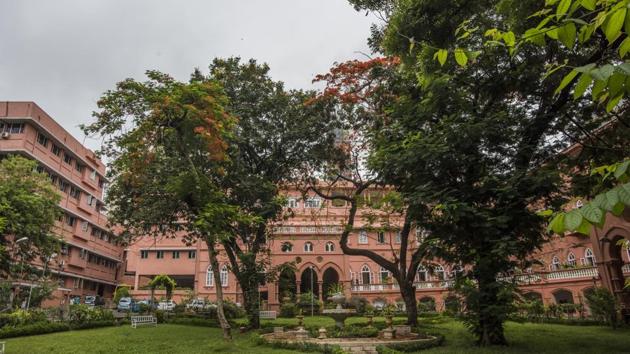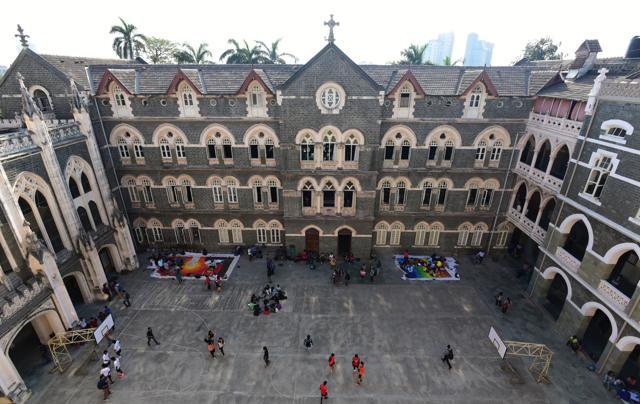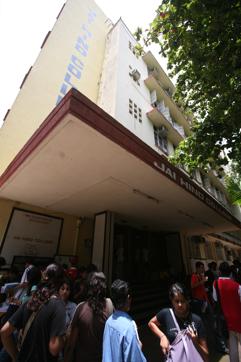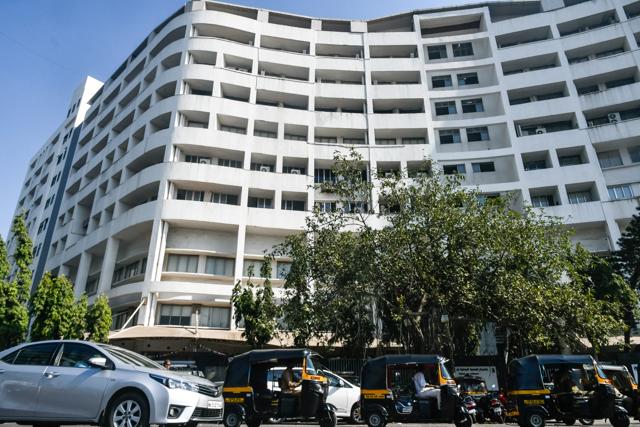As 8 Mumbai colleges get special grants, check out what they plan to do next
The national higher-education scheme RUSA recognises autonomous institutes of quality with special grants.
Eight colleges in the city are working to create Harvard-style tiered classrooms, develop rubrics to analyse how much students enjoy lectures, and set up cells where they can hone their start-up ideas, all with funds granted by the Centre.

The scheme is the Rashtriya Uchchatar Shikshan Abhiyan (RUSA), set up to provide funding to boost infrastructure at autonomous educational institutes of repute across the country.
In September, the union ministry of human resource development announced that year’s list of 12 recipient colleges in Maharashtra.
Eight of the 12 are from the Mumbai region — Xavier’s, Sophia, Jai Hind, Mithibai, SIES, Ruia, BK Birla and Karmaveer Bhaurao Patil. Each institute will be eligible to receive ₹5 crore in funding, in instalments, over the next 18 months.
“The RUSA grant is like a pat on the back for the contributions the colleges have made,” says Ashok Wadia, principal of Jai Hind College, Churchgate.
“I respect the funding since it is the public money. And I think all of us really want to make it count.”
RUSA: WHAT IT IS AND HOW IT WORKS
The Rashtriya Uchchatar Shikshan Abhiyan or RUSA is a scheme devised by the central government to provide funding to boost infrastructure at autonomous educational institutes across the country
So far, institutes from five states — Maharashtra, Tamil Nadu, West Bengal, Karnataka, and Bihar — have received RUSA grants
Key criteria include a score of 3.5 by the National Assessment and Accreditation Council (NAAC), a good academic record, and autonomous status In Maharashtra, 12 institutes were selected in 2018, eight of them from the Mumbai region. These colleges have started receiving funds
Last week, another 10 autonomous institutes in the state were approved for RUSA grants, taking the total for the state to 22
Colleges are using these funds to upgrade infrastructure, add certificate courses, introduce modules on new subjects and maintain physical structures
ACTION PLANS
At Sophia College on Peddar Road, the focus is on improving faculty and research, says Sr Ananda Amritmahal, the principal. “We are going to conduct more guest lectures and increase the number of visiting faculty, especially the industry experts. We are also setting up an entrepreneurship cell and skills hub with money from the RUSA grants.”
There are also plans for seminars, workshops and conferences for staff to upgrade their skills. Boosting research is another priority.
Only 30% of the funds can be used to for construction. “With part of that, we are going to upgrade our heritage building,” says Sr Amritmahal.
At Jai Hind, talks are on with architects to constructing Harvard-style classrooms. The RUSA funds are also being used to strengthen their entrepreneurship incubation cell.

“We have a wellness centre where we call nutritionists, psychiatrists and other health experts to conduct monthly sessions for students. We will use some of the funds for these sessions,” says Wadia.
Deserving faculty will now be able to travel for field work and surveys. “We can also arrange for software and assistance to help them complete their research work,” Wadia adds.
At BK Birla College, Kalyan, where more than 60% of the students are girls and women, principal Avinash Patil plans to all more CCTV cameras for added security.
There are also plans to introduce certificate courses on subjects such as biostatistics, cyber security and animation, for minimal fees ranging from ₹300 to ₹500.

“We want students to learn as much as they can and we want that the fees should not be an obstacle. With the RUSA funds, we will be able to achieve this,” he says.
THE MONEY TRAIL
According to RUSA guidelines, the sum of ₹5 crore will be released in instalments. The first instalment was released after each institute submitted its Phase 1 utilisation plans.
Each institute must then utilise 70% of the funds released, as planned, by the end of March, to receive the next instalment.
Restrictions are in place. For expenses under ₹3 lakh, quotation receipts have to be produced. If expenses in one particular area or department exceed ₹3 lakh, then tenders have to be issued.

Getting the RUSA funding is a reward for the hard work put in by higher education institutes, adds Meeta Rajivlochan, principal secretary and director of the state project directorate - RUSA, Maharashtra.
“For instance, if 50 are eyeing for the grants and five institutes end up being successful, I can tell you that the other 45 will have improved a great deal in the process anyway. And such competition is healthy for the higher education sector.”
Once a college becomes autonomous and has the freedom to modify their curriculum, the state RUSA panels vet applications. “The funds are meant to encourage these institutes to get even better — by, for instance, introducing basic modules on subjects like artificial intelligence and data analytics for all students. And we are here to help with advice or guidance,” Rajivlochan says.
In the last six months, the Rashtriya Uchchatar Shikshan Abhiyan has organised courses for college faculty on subjects ranging from security to artificial intelligence, banking and market research, and has also held workshops for principals on leadership.
A committee of academics and industry experts analyses and predicts subjects likely to trend in the year to come.
“This committee of experts suggests courses to incorporate in curricula and also equips teachers in those subjects through training sessions,” Rajivlochan says.
“The objective is to increase the average quality of higher education, which has a pivotal role in shaping the youth and the economy of the country.”












